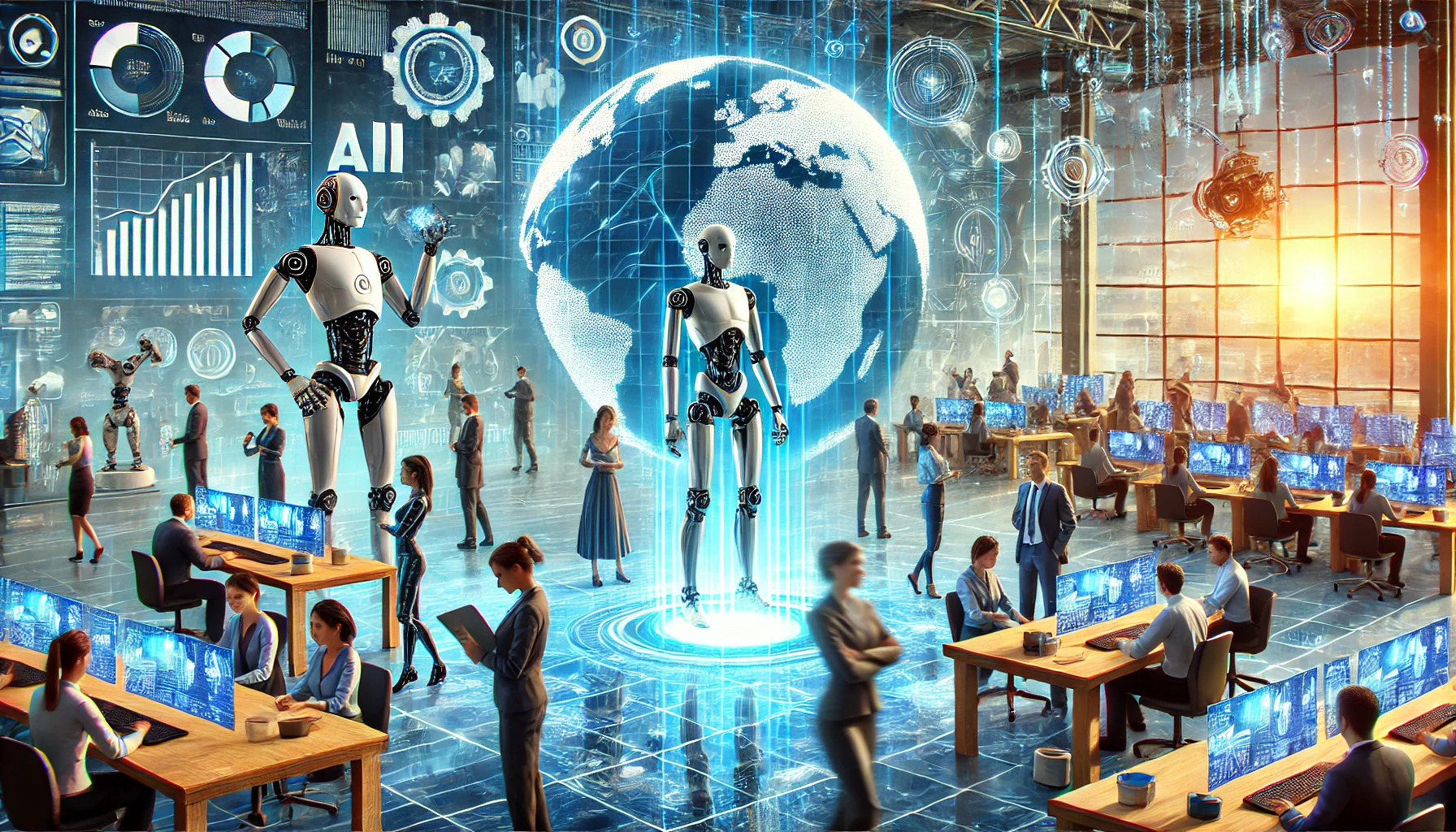Preparing for Tomorrow: Digital Transformation’s Impact on Jobs and Inequality
The research explores how digital transformation, driven by AI and automation, is reshaping global labor markets, creating opportunities while widening skill gaps and inequalities. It emphasizes the need for ethical AI integration, workforce upskilling, and collaborative policies to ensure equitable and inclusive economic growth.

The research, conducted by the World Bank in collaboration with Romania’s Ministry of Research, Innovation, and Digitalization (MCID) as part of their Reimbursable Advisory Services Agreement, explores the profound impact of digital transformation on the global workforce. Through the development and piloting of the Startup Enabler Capability Assessment (SECA) toolkit, the study examines how automation and artificial intelligence (AI) are reshaping labor markets, creating both opportunities and challenges for economies worldwide. By analyzing current data and global case studies, the research highlights the dual nature of technological advancements. While these innovations promise economic growth and increased efficiency, they also present risks such as job displacement, skill mismatches, and widening inequalities if left unaddressed.
Unequal Impacts Across the Globe
A key finding is that the impact of digital transformation varies significantly across regions. Developed economies, equipped with advanced infrastructure, robust education systems, and significant technological investments, are better positioned to harness these changes for economic gains. For example, countries with strong broadband networks and extensive AI research benefit from increased productivity and job creation in high-tech sectors. Conversely, developing nations face obstacles such as limited access to technology, insufficient workforce training, and outdated education systems, making it harder to adapt. The study highlights the urgent need for targeted interventions, such as public-private partnerships, inclusive digital policies, and global cooperation, to bridge these gaps and ensure that all countries can reap the benefits of technological advancements.
The Workforce Dilemma: Job Creation Versus Displacement
The study dives into the labor market dynamics brought about by AI and automation. Traditional roles, particularly those involving repetitive tasks or manual labor, are increasingly being replaced by automated systems. At the same time, new opportunities are emerging in fields like data science, AI ethics, robotics, and software engineering. However, these roles demand specialized skills that workers from traditional industries often lack. The researchers call for a rethinking of education and workforce policies to address these gaps. They emphasize the importance of fostering adaptability and lifelong learning to enable workers to transition seamlessly into new roles. Without such measures, the risk of large-scale unemployment and growing economic inequality becomes imminent.
Ethical Challenges in an AI-Driven Era
As AI becomes more deeply integrated into industries, ethical concerns come to the forefront. Issues such as algorithmic bias, transparency in AI-driven decision-making, and data privacy emerge as critical challenges. The researchers stress the need for robust regulatory frameworks to address these concerns. They argue that ethical AI practices must be central to ensuring fairness and equity in the workplace. For instance, if AI algorithms are not carefully designed, they risk reinforcing existing biases, further marginalizing vulnerable groups. Transparency in AI processes, coupled with worker protections, is vital for maintaining public trust and creating inclusive technological ecosystems.
Building a Resilient Workforce for the Digital Age
The report highlights the collaborative role of governments, businesses, and educational institutions in creating a resilient workforce capable of thriving in the digital age. Governments are urged to implement forward-thinking policies that support technological adoption while protecting workers’ rights. Businesses are encouraged to invest in employee training programs and create pathways for career advancement in emerging industries. Meanwhile, educational institutions must redesign curricula to emphasize digital literacy, critical thinking, and technical expertise. The researchers underscore the importance of cross-sector partnerships to ensure that these efforts are well-coordinated and effective in preparing workers for the future.
Global Disparities and the Path Forward
The research also examines global disparities in digital readiness. Wealthier nations with advanced technological ecosystems are accelerating their economic growth through automation, while less developed regions risk being left behind. To address this, the study calls for international collaboration to share resources, best practices, and technologies. Wealthier countries and global organizations must play a role in helping developing nations build the foundations of a digitally inclusive economy. This includes providing access to affordable technology, enhancing digital literacy programs, and fostering innovation hubs in underserved regions.
The Future of Work in a Tech-Driven World
Looking ahead, the researchers warn of the long-term risks of unchecked technological disruption. While there is optimism about the economic growth driven by AI and automation, there is also concern about the widening inequality if current trends persist. Proactive measures are necessary to mitigate these risks, including establishing safety nets for displaced workers, incentivizing ethical AI adoption, and promoting a culture of continuous learning. The report also emphasizes the need to future-proof economies by investing in human-centric technologies that prioritize well-being and inclusivity over mere efficiency.
The comprehensive study paints a detailed picture of the transformative effects of digital technologies on global labor markets. It calls for urgent, coordinated action to ensure that the benefits of technological advancements are shared equitably across all sectors of society. Governments, businesses, and educational institutions must work together to create policies and programs that foster an inclusive and resilient workforce. Ethical considerations and regulatory safeguards must be central to these efforts to ensure that AI and automation serve as tools for empowerment rather than exclusion. By addressing these challenges and opportunities head-on, societies can navigate the complexities of digital transformation and build a future defined by progress, equity, and shared prosperity. At its core, the study offers a critical reminder: the digital revolution’s success depends not just on technological innovation but on the policies, systems, and people who shape its trajectory.
- FIRST PUBLISHED IN:
- Devdiscourse










